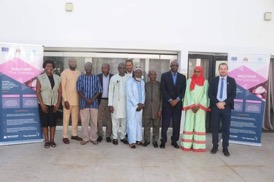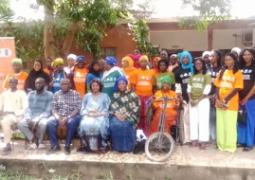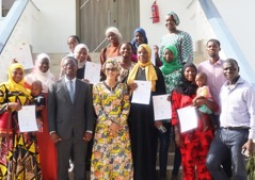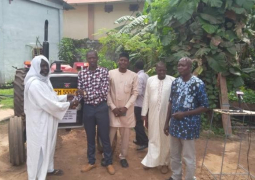
The West Africa Competitiveness Programme aims to support a number of selected value chains at national and regional level to promote structural transformation and better access to regional and international markets, while taking into account social and environmental concerns. The WACOMP consists of one regional component and sixteen national components (15 ECOWAS Member States and Mauritania).
WACOMP’s specific objective is to improve the performance, growth and contribution to industry, regional trade and exports of onion and other horticulture value chain.
Moreover, the sixth project steering committee is aimed at developing a plan for the project in 2024 and discuss its smooth implementation.
In his remarks, Christian Lasser, UNIDO Project Administrator said in light of the need for quality standards in The Gambia to compete on the international market, UNIDO’s interventions through the WACOMP, have been systematically supporting the overall business environment in the country through improved quality infrastructure, with a particular focus on onion and allied value chains.
“In Africa, UNIDO works closely with local and national governments as well as regional and continental inter-governmental institutions to bear response to their industrial development needs and priorities,” he said.
According to the United Nations, currently there are 46 Least Developed Countries (LDCs), 33 of which are in Africa.
However, he said there is in particular a strong need to foster Pan-African trade competitiveness and market access in the framework of the African Continental Free Trade Area (AfCFTA) that aims to give a decisive boost to continental integration through harmonising of trade-related rules, strengthening of mutual recognition, and cross-regional business partnerships.
“The AfCFTA as a continental opportunity comes at a time where African countries and other regions in the world face global challenges like climate change with the associated need to adapt and mitigate environmental degradation, in particular through smart agriculture, renewable energy concepts, new technologies and smart production in manufacturing industries,” he also added.
“In order to enhance intra-African and international trade, there is a strong need for us international development partners to jointly contribute to development assistance programmes and complement each other’s expertise to maximise our support towards LDCs in Africa and beyond,” he further said.
He said UNIDO is committed to continue collaborating with The Gambia Government, the EU and the project beneficiaries in implementing programmes such as WACOMP The Gambia, focusing on essential areas for development such as quality infrastructure, value addition and diversification of value chains for trade competitiveness and market access, to achieve their shared goal of promoting inclusive and sustainable industrial development in the country and beyond.
Lumana Kamashi, EU representative said there are several challenges across the onion and allied valued-chain that require specialised intervention to overcome them, citing the need to improve primary production, boost the processing and enhance adding value initiatives, develop the quality infrastructure and logistics linked to the different value-chains as well as to promote access to market.
However, she said the WACOMP project has tried to address some of these challenges on a pilot basis on a close collaboration and synergies with other government and development partner initiatives.
Fatou Jammeh Touray, deputy permanent secretary for projects and programmes at the Ministry of Agriculture commended the project for its meaningful partnership with the Ministry of Agriculture (MoA), noting that the ministry is also honoured that the project trained its staff and provided inspection tools that will help the ministry to enhance access to the international market.
She further applauded WACOMP-The Gambia for its immense contribution to the development of horticulture particularly onion production.




